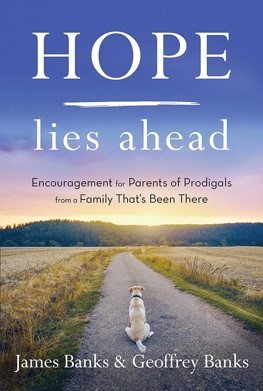
As far as Cara is concerned, she was never a rebel.
The reason she walked out of church and away from the Christian faith when she was a teen, she explains, is not that she deliberately wanted to defy her parents and hurt them.
Rather, it’s because she just couldn’t accept what she was taught about “proper Christian behaviour”, and more importantly, the way it was taught.
“I was not a rebel,” she adds. “I just wanted to be heard, to be understood.”
While some children might have simply obeyed everything their parents taught, the headstrong girl wanted more explanations and answers—which she didn’t get.
Her parents, she says, were more interested in making sure she behaved in a certain way than in finding out why their teenage daughter wanted to do otherwise.
“It had the opposite effect,” she says. “The more they pushed me, the more I pushed back. I wanted them to understand how I felt and help me figure out my struggles, but they would just say, ‘Get over it’.”
“I was not a rebel,” she adds. “I just wanted to be heard, to be understood.”
Hope Lies Ahead: Encouragement for Parents of Prodigals from a Family That’s Been There
Get our latest family resource!
Our latest resource, Hope Lies Ahead: Encouragement for Parents of Prodigals from a Family That’s Been There is now available.Get a copy
Every month, we roll out a new resource for parents and children. To find out about these offers, why not subscribe to our email updates? Stay informed about the latest resources available, and be the first to get a copy!
‘My Actions Don’t Define Me’
Today, Cara is working in a Christian organisation—and thus cannot reveal her real name—and is more than able to laugh as she recalls her tumultuous years as a teenager.
Her explanation of what was going through her mind more than 10 years ago gives an interesting insight into the tension between many parents and teenage children.
While it is natural that parents want to ensure that their children do the right thing in the best way, she notes, what many teenagers are looking for is to simply be accepted for who they are, and not who they should be.
And even more importantly, they don’t want to be defined by their actions.
“I was just being myself. I wasn’t intentionally going against them for the sake of it. I was just trying to be real.”
Just because a teenager doesn’t obey her parents all the time doesn’t mean she’s being a rebel, she says, and offers her experience as an example. And nothing, she hastens to add, hurts a child more than being labelled “lazy” or “rebel” just because of some of her actions.
“To me, I was just being myself. I wasn’t intentionally going against them for the sake of it. I was just trying to be real,” she says.
One of the worst things was being told to live up to standards she didn’t agree with. Cara says she sometimes felt rejected because she didn’t match up to her parents’ expectations of how a “good Christian girl” was supposed to behave.
She felt that she wasn’t appreciated for who she was—especially in church.
‘I Just Didn’t Fit in’
Despite growing up in a Christian family and going to Sunday school every week, Cara never felt like she fit into the church community. Many adults, she recalls, did not seem to accept her “liberal” behaviour.
She says: “People would ask me, ‘Why do you have piercings? Why do you always wear black? Why do you listen to rock music?’ But I thought, why should that matter? It’s just my personality, it’s not a matter of my heart. But to them, I was not a typical, ‘acceptable’ Christian.”
The constant disapproving looks and questions gave Cara the impression that Christianity was all about rules, rituals, and religiosity. That all it sought to do was to change her and “put me into a box”.
It didn’t help that many of the teens in her church actually felt likewise, though their parents never knew it. Many of them, she says, appeared to be “good Christian kids” but were doing things behind their parents’ backs.
Now, she understands that these teenagers may have in fact been doing this out of respect for their parents, and not to embarrass them in public.
“I wanted to be honest to myself, to be true. I didn’t want to pretend to be someone else, I was proud of who I was, even if my parents weren’t proud of me.”
At the time, however, the young Cara found this apparent hypocrisy unacceptable.
“Why pretend when you don’t believe?” she points out. “For me, I wanted to be honest to myself, to be true. I didn’t want to pretend to be someone else, I was proud of who I was, even if my parents weren’t proud of me.”
That stance caused even more tension at home. Cara’s behaviour and lifestyle angered her parents, while she got even more resentful that they weren’t accepting of who she really was.
So, when she was about 12 or 13 years old, she decided to stop going to church—and to stop following God.
Remembering Past Lessons
Despite walking away from church and the faith, Cara says the lessons that her parents had tried to teach her weren’t completely lost. She would remember them later—much later.
When she entered university, she began to question her own beliefs and prejudices about Christianity.
On one hand, she couldn’t understand how people were still so “unattractive” even though they were supposed to be Christians. That included her parents, she adds with a laugh.
“I just didn’t understand grace,” she says. “When I saw them fail in living out the Christian faith, I would throw it back at them. ‘See, you also can’t control your temper’.”
The truths she was taught when young, she says, gave her a firm foundation to lean on when she felt lost.
On the other hand, some of the things that Cara was taught about God came back to mind as she struggled with questions about her purpose in life and the meaning of life. In particular, the lament of King Solomon in Ecclesiastes 1:2 rung in her ears: “Meaningless! Meaningless! . . . Utterly meaningless! Everything is meaningless.”
As she wondered why her life seemed so empty and unfulfilled, Cara began to recall what her parents had taught about who created man and why. Realising that she had to go to the Creator for answers on why she was created, she eventually came to a point of surrender, and gave her life to God.
The truths she was taught when young, she says, gave her a firm foundation to lean on when she felt lost.
The Assurance of Love
As Cara progressed in her journey back to God, her parents tried to help in their own way. They tried to tell her that God was the answer, and that life’s purpose could be found in following Him.
Cara heard them out, but remained unconvinced by their approach. “They tried to nag me into obedience,” she says. “But you have to choose to surrender; you can’t be scolded into it.”
In the end, she says, what brought her back to God was her own desperation and her own need for love and meaning. “Sometimes you just need to go through the experience yourself,” she says.
“Sometimes you just need to go through the experience yourself.”
But, she stresses, her parents’ efforts were not wasted in the least. While she may not have always agreed with their approach, she greatly appreciated their assurance that they loved her nevertheless. In many ways, it showed her a glimpse of God’s longsuffering love—a love that was patient and kind (1 Corinthians 13:4, 7).
“I knew that no matter what I did, I would always be welcomed back like the prodigal son in Luke 15,” Cara says. “It was very important to me. It assured me that our ties would not be ‘cut off’ because of what I did, and that they would be there for me when I needed help.”




